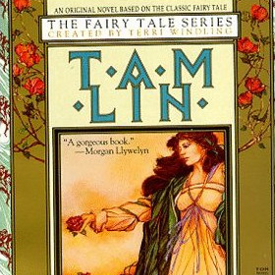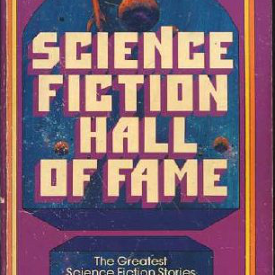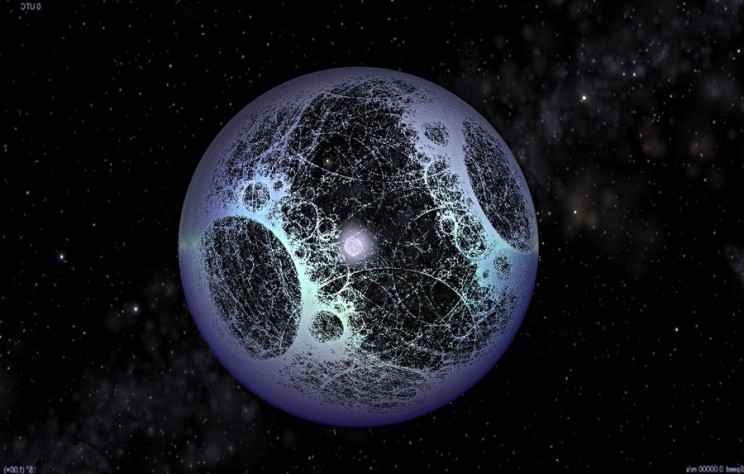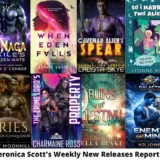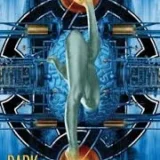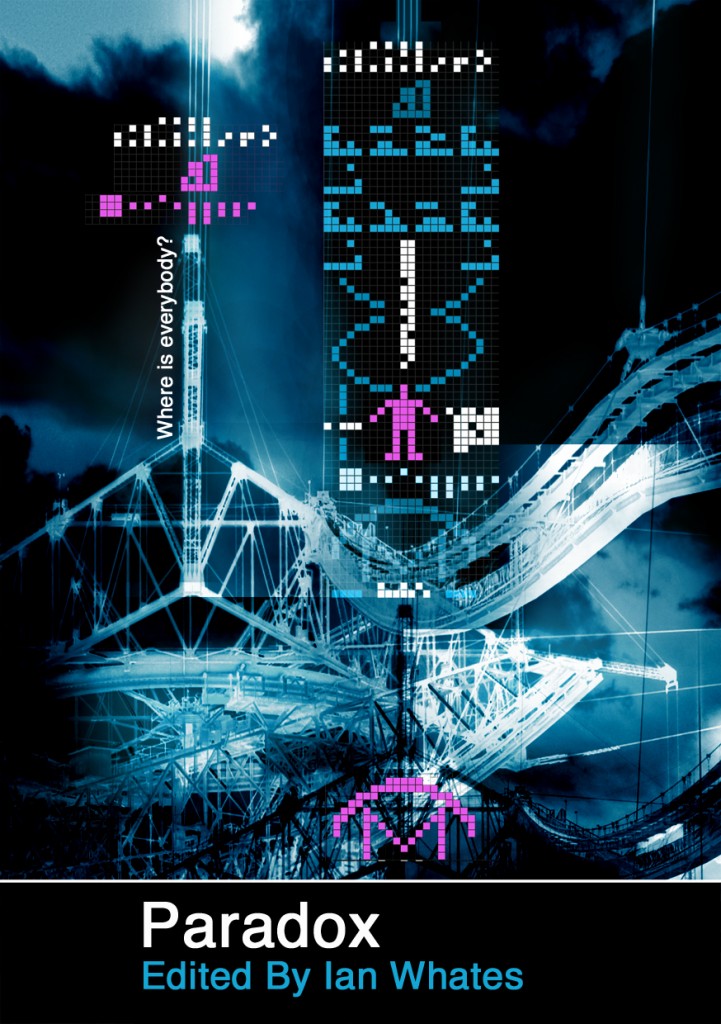 Paradox, edited by Ian Whates and published by Newcon Press, is a collection of new stories exploring aspects of the Fermi Paradox: if, given its estimated age and size, the universe is as full of intelligent life as science predicts, then why have we not seen even a hint of any extraterrestrial civilization? The history of thought on the matter, as well as an overview of the issues to be considered, are expertly set out in a substantial introduction by Marek Kukula and Rob Edwards of the Royal Observatory, Greenwich.
Paradox, edited by Ian Whates and published by Newcon Press, is a collection of new stories exploring aspects of the Fermi Paradox: if, given its estimated age and size, the universe is as full of intelligent life as science predicts, then why have we not seen even a hint of any extraterrestrial civilization? The history of thought on the matter, as well as an overview of the issues to be considered, are expertly set out in a substantial introduction by Marek Kukula and Rob Edwards of the Royal Observatory, Greenwich.
The bulk of the book comprises 16 stories (in 210 pages) by Rachel Armstrong, Keith Brooke & Eric Brown, Pat Cadigan, David L. Clements, Paul Cornell, Paul di Filippo, Robert Reed, Mike Resnick & Robert T. Jeschoenek, Mercurio D Rivera, Adam Roberts, Stephanie Saulter, Tricia Sullivan, Adrian Tchaikovsky, Gerry Webb and George Zebrowski.
Some stories address the Fermi Paradox head on, mentioning it by name, discussing it, having scientists explore the possibilities, while others don’t mention it at all, but provide answers, either explicit or implicit: we are too self-absorbed or limited in our imaginations to look hard enough, or in the right places; the aliens are here, but are so different from us that we are not aware of their presence; there really is hardly anyone out there; one alien intelligence is so dangerous all the other surviving aliens are keeping a very low profile. Stories range from small scale character studies to tales of adventure to an epic of Clarkean / Stapledonian transcendence.
The opener, ‘Catching Rays’, by astrophysicist David L. Clements directly addresses the central problem with scientists on the moon conducting experiments while agonizing over funding. Clements’ solution to the Fermi Paradox is certainly imaginative, but the characters are flat and the story depends on not one, but both the central female scientists behaving in ways which are against the (very sensible) rules, threaten their careers and endanger the moonbase. It might be what Hollywood maverick scientists do, but it doesn’t convince in realistic hard SF.
Gerry Webb has been an active member of the British Interplanetary Society since 1957 and is the founder of Commercial Space Technologies Ltd. He has worked professionally in the field since 1960 and in 1979 he chaired a panel on the Fermi Paradox with Arthur C. Clarke and Poul Anderson at the 1979 UK Worldcon. His story ‘In The Beginning’ is set 400 years in the future in a vast company/family owned space habitat. Think of Babylon 5, or the space faring futures of a Peter F. Hamilton novel. The story begins with a senior family member, Alex, surviving what appears to be an assassination attempt. The Fermi Paradox is addressed by Alex actually delivering a class to some of his great great grandchildren on the subject. The story doesn’t amount to much, isn’t very well written and feels old-fashioned in every respect.
Against this scientist Dr Rachel Armstrong, who is described as a Black Sky Thinker and was a 2010 Senior TED Fellow, delivers in ‘The Worldmaker’, one of the most sophisticated, imaginative and beautifully written stories in the book. Armstrong begins with a dinner date in a future age of plenty, in which the ultimate aphrodisiac is denial, but this is only a lauchpad for a story which is as ambitious in content as it is in structure.
The remaining 13 stories come from professional SF writers. In ‘The Big Next’ Pat Cadigan provides a beautifully-extrapolated exploration of at least where some of the aliens are, all done in a few pages in conversation between a mother and her brilliant young daughter. The story fizzes with youthful curiosity and captures wonder, joy and melancholy.
In ‘Baedecker’s Fermi’ Adam Roberts suggests the solution to the Fermi Paradox may rest in our ability to perceive. Just as the good German burghers of 1900 fail to perceive the aliens in their midst – two gay Englishmen on holiday – so the narrator is altogether attuned to the presence of Jews around him, and to incursions in the sky to which others are oblivious. The narrator is disquieted by his reading of The War of the Worlds, and a chance meeting raises questions as to whether ‘the portrait’ can influence ‘the sitter’, with the suggestion that perhaps a century of reading SF can prime the mind to look in the right place…
‘Zeta Reticuli’ by Paul Cornell is one of several stories which doesn’t address the Fermi Paradox at all, but is an ingenious, richly-imagined reworking of one of the founding mythologies of the UFO abduction cult.
Tricia Sullivan’s ‘The Ambulance Chaser’ is a original and highly entertaining comedy which doesn’t address the titular paradox directly, but posits a form of alien life so bizarre as to be barely imaginable to us, and so rarely perceived. Sullivan offers a clever explanation for those moments of sudden clarity, strength and slow-motion experienced in moments of peak hazard.
Humour, of a decidedly dark hue, also runs through off-the-wall space opera ‘The Trail of the Creator, the Trial of Creation’ by Paul di Filippo. With one third of the galaxy populated, every sentient species ever discovered shares 99% of the same DNA. This fact so offends the various religious sensibilities of a group of embittered killers of diverse species that they team up to hunt down and kill the ‘god’ who is seeding the galaxy. It all plays out with a comicbook feel and gets very peculiar indeed. I’ve loved many of Paul di Filippo’s stories but this one fell flat for me.
‘Fermi’s Doubts’ by George Zebrowski features a protagonist who falls into friendship with a neighbour who may be an alien, or simply delusional. ‘Audiovisonary’ by Stephanie Saulter has thematic similarities, though is more imaginatively developed. Joe, a long-term mental patient, hears voices and struggles to comprehend their messages, but does he suffer from a rare, perhaps untreatable genetic disorder, or is he victim of a fraught, alien, cultural divide?
The protagonist of Mike Resnick and Robert T. Jeschoenek’s ‘Stella By Starlight’ is, like Joe, blighted by illness, in her case a dreadful degenerative disease. The story starts with Be Kind to Lumpies Day in a future America, and journeys towards transcendence with an intriguing, if somewhat arbitrary-seeming cosmology. The name of the heroine, Stella Nolan, would appear to tip the hat to a highly anticipated forthcoming SF film, but the authors would probably say this was a coincidence.
‘The End of the World’ by Keith Brooke & Eric Brown is a good, traditional adventure story. Dr Ben Richmond is one of nine survivors of an alien invasion. He remembers less each time he wakes in a white, featureless room, but must decide whether to trust the A.I. which clearly isn’t telling him everything.
The final story, ‘Atonement, Under the Blue-White Sun’ by Mercurio D. Rivera explains much in its title, and set in the aftermath of a war between humanity and the alien Medusans, works to a hard-won, moving resolution.
I deliberately haven’t mentioned all the stories, so as to leave a few complete surprises. Paradox lives up to the usual high standards we have come to expect from Newcon Press. It’s unlikely that anyone is ever going to like all of any batch of 16 stories by 18 different writers, but most of the stories here are very good. Four or five are outstanding.
Back in 1983 in Monty Python’s Meaning of Life Eric Idle sang:
‘So remember when you’re feeling very small and insecure
How amazingly unlikely it is your birth
And pray that there’s intelligent life somewhere up in space,
Because there’s bugger all down here on Earth.’
Well Mr Idle might be relieved to find his prayers answered at least in part, as Paradox offers sufficient intelligence between its covers to provide pointers to its kin elsewhere.
…is a freelance editor, writing consultant and story structure expert. To find out more, including hiring me to work on your writing project, read my profile or visit my website, To The Last Word.

